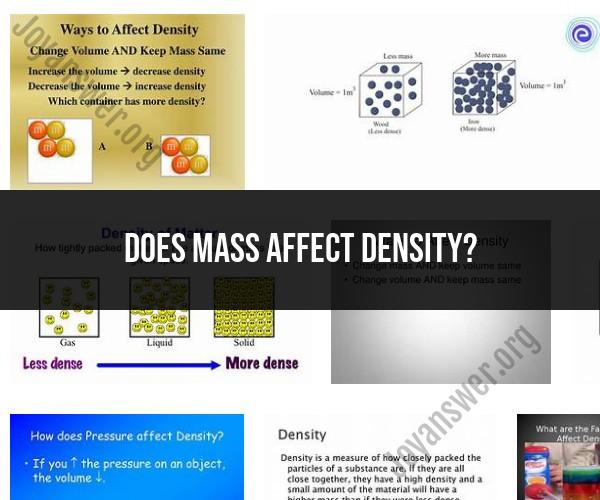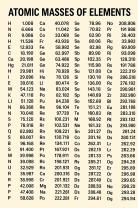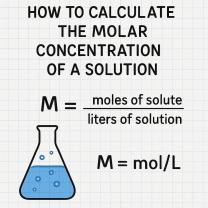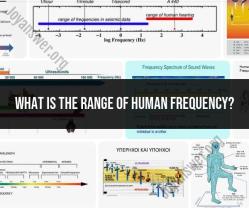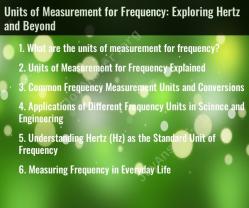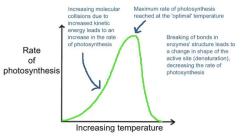Does mass affect density?
Yes, mass does affect density. Density is a measure of how much mass is contained within a given volume. The relationship between mass and density can be summarized as follows:
Direct Relationship: Generally, as the mass of an object or substance increases while its volume remains constant, the density also increases. In other words, if you have more mass packed into the same amount of space, the density will be higher.
Inverse Relationship with Volume: Alternatively, if the mass remains constant but the volume increases, the density decreases. This means that if you spread the same amount of mass over a larger volume, the density will be lower.
Mathematically, the relationship between mass (m), volume (V), and density (ρ) can be expressed as:
Where:
- (rho) represents the density in units such as grams per cubic centimeter (g/cm³) or kilograms per cubic meter (kg/m³).
- is the mass of the object or substance in grams or kilograms.
- is the volume of the object or substance in cubic centimeters (cm³) or cubic meters (m³).
This relationship is fundamental in understanding the characteristics of different materials and substances. For example, lead has a high density because it is very heavy (has a large mass) for its volume, while a material like styrofoam has a low density because it is lightweight (has a small mass) for its volume.
Mass's Impact on Density: How Weight Influences Material Properties
Mass and density are two fundamental properties of matter. Mass is a measure of the amount of matter in an object, while density is a measure of how tightly packed the matter is in an object.
The relationship between mass and density can be expressed by the following equation:
Density = mass / volume
This equation tells us that density is directly proportional to mass and inversely proportional to volume. In other words, the more mass an object has, the denser it is, and the smaller the volume of an object is, the denser it is.
Here are some examples of how mass affects density:
- A lead fishing weight sinks faster than a cork fishing weight because lead has a higher density than cork.
- A hot air balloon can rise into the air because the hot air inside the balloon has a lower density than the surrounding air.
- A ship can float on the water because the ship's density is lower than the density of water.
Mass vs. Density: Examining the Effect of Mass on Substance Density
The density of a substance is a constant property, regardless of the mass of the sample. For example, the density of water is always 1 gram per cubic centimeter, regardless of whether you have a small glass of water or a large swimming pool full of water.
However, the mass of a substance can affect its density if the substance is compressed or expanded. For example, if you compress a gas, you are increasing its density. If you expand a gas, you are decreasing its density.
Weight Matters: Understanding How Mass Affects Density
Weight is the force of gravity acting on an object. The weight of an object is directly proportional to its mass. In other words, the more mass an object has, the heavier it is.
Density and weight are related, but they are not the same thing. Density is a measure of how tightly packed the matter is in an object, while weight is a measure of the force of gravity acting on an object.
Overall, mass plays a key role in density. The more mass an object has, the denser it is. However, the density of a substance is a constant property, regardless of the mass of the sample.
